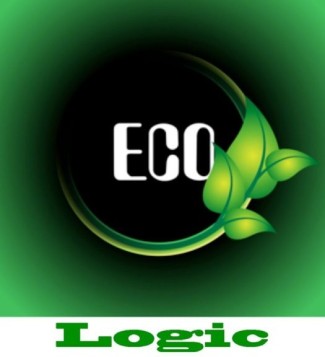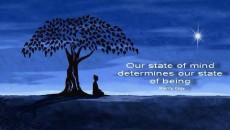Will New Policies and Practices
Carry Us Through the ‘Flipping Point’?
by Keely Badger
It is impossible to separate the wellbeing of the human person from the wellbeing of the earth. It is because of our interplay and deep reliance that the conversation around sustainable development and universal human rights is, in fact, the same one. As we find ourselves propelling forward this new era of global interdependence, the glue of common interest, if properly perceived, should bind all communities, states, and nations together in this cause, as should the impulses of our common humanity.
No longer are the Huns attacking a swath of Europe—the Roman Empire—for her wealth and resources; the Huns, today, the mega corporations, are bent on controlling the whole globe, while exploiting the nations at the tipping point of population growth and resource depletion.
According the Gregg Braden, noted progressive thinker and social commentarian, we are beyond the ‘tipping point’ in environmental sustainability and have entered into the ‘flipping point’. What lies beyond this volatile moment would be anyone’s guess, but it offers a powerful nexus point where change creates the potentiality of coming back into balance. Rome never recovered her former glory days, but life went on, after the Dark Age came the Renaissance. Cycle follows cycle, and as a species we are evolving in consciousness and learning to master our world; some by force, others by enlightened discourse and action.
Increasingly, ‘sustainable development’ has become a staple of socio-politics because it is so often lacking in both the developed and developing countries, alike. Conceptually defined in many ways, its most foundational precept is that: Development should meet the needs of the present without compromising the ability of future generations to meet their own needs. As such, it contains within it the concept that needs, in particular the essential needs of the world’s poor, should be given overriding priority, and that there are limitations imposed by the state of technology and social organization on the environment’s ability to meet present and future needs. Thus, it is critical that those limitations must always inform the policy and practice through which we realize our human right to life, liberty, and the pursuit of happiness. At its very core, sustainable development requires that we see the world as a system —a system that connects the panhuman culture within the matrix of space and time.
The Universal Declaration of Human Rights (UDHR) in 1948 (article 21, 23, 25, 25, 26, 27, 28) was the first international document to articulate the inherent dignity of the human person and address rights relating to development, including the right to take part in government; realization of all economic, social and cultural rights that aid the development of personality; fair employment; adequate standard of living; education directed toward development of the human personality; enjoyment of scientific advancement; an international environment and order in which all rights can be realized, and the government and rule of international law to ensure it.
It has been, no doubt, one of the United Nations greatest failures to have not secured the basic human rights of all peoples, or the regulation of unsustainable development and environmental degradation by the corporations and governments that would rent the very fabric of life.
China’s engagement in Africa, as one key example, has become a hot topic since it significantly accelerated its rate of investment in African countries in the early 2000s. “Land grabs” are now one of the biggest issues in Africa, and are a result of rapidly increasing corporate and foreign governments leasing large areas of arable land with water resources in some of Africa’s poorest countries- also in Central Asia, Eastern Europe, and South America. Sino-African relations – made in the context of China’s growing global footprint –are just one example of the new exploitative hunt by large agribusiness to follow the dollar, even at the cost of jeopardizing the human rights and human survival of the world’s most desperate people. With land central to the livelihoods of nearly 70 percent of the world’s poor in rural areas, covering one-third of the world’s land and requiring more than two-thirds of the world’s water withdrawals, competition for these resources is increasing with the growth of population, cities, and demand for food. As climate change alters the patterns of rainfall and seasonal temperatures that agriculture depends on, the impact of these ‘land grabs’ should be at the forefront of environmental concern.
Furthermore, the resulting large-scale land acquisitions on the continent’s farmers, like those made in Ethiopia to produce foreign-owned oil palm plantations, or in Uganda where 20,000 people have been evicted from their land to make way for a UK-based forestry firm, illustrate the imperative of incorporating a human rights framework into the international development rule of law, as unsustainable development not only dispossesses global populations from sustainable practices, but from their fundamental human right to adequate food and nutrition, the right to clean water, the right to sanitation, and the right to health care to which we are all inherently entitled.
The corporate conglomerate Monsanto has also recently turned to Africa to expand its own global land grab, and on May 25, 2013, more than two million people marched against Monsanto in dozens of countries worldwide as a statement of solidarity against it’s imperial global agenda. As we in the United States face our own threats to food sovereignty with unchecked GMO growth, we must ask whether will we feed the habit or continue to cultivate an alternative lifeway that confronts such corporate chaos? As Gregg Braden might put it, we have the opportunity to thrive on the edge of the world’s perfect storm, but only if we confront the unsustainable systems at place in everyday life, and walk forward into the fray with new meaning and new hope.
During these periods of great difficulty in international affairs, in the face of both new threats and old ones in new guises, there is a yearning in many quarters for this new consensus on which to base collective action. And that desire is increasingly made manifest by the quest for sustainable development and practices, from Sedona to Shasta, Taos to Vancouver, Bhutan to Brazil. In this era of global abundance, our world has the resources to dramatically reduce the massive divides that persist between rich and poor, but only if those resources can be unleashed in the service of all peoples. Through the use of alternative economies, biodynamic farming, and renewable solar, wind, hydro and geothermal power, we create a world where sustainable development can be a universal human right shared by all people.
Understanding sustainable development as a human right marks the beginning of a great leap forward—jumping the synaptic gap with a positive pulse, and propelling a great movement forward beyond individualism and narrow self-interest, to a flourishing community with a global collective conscience…and heart.

